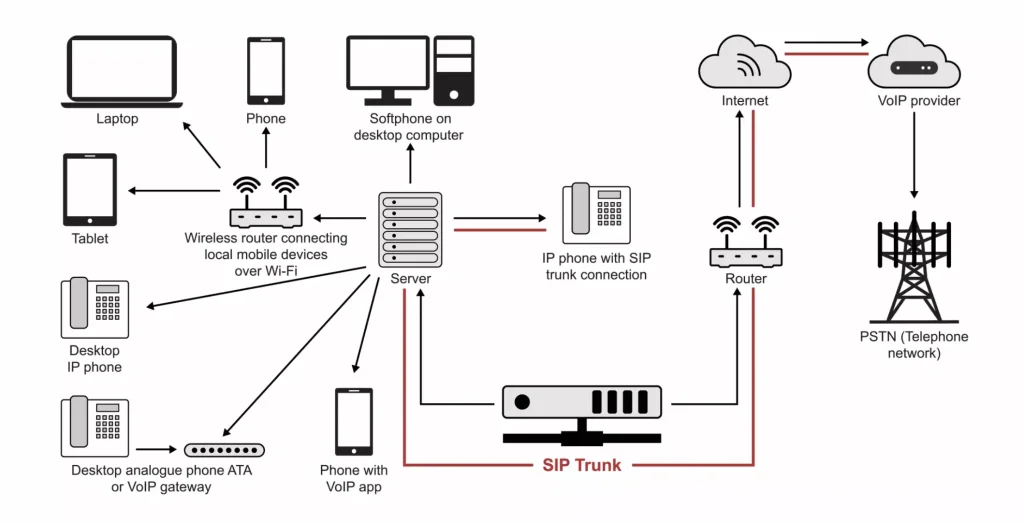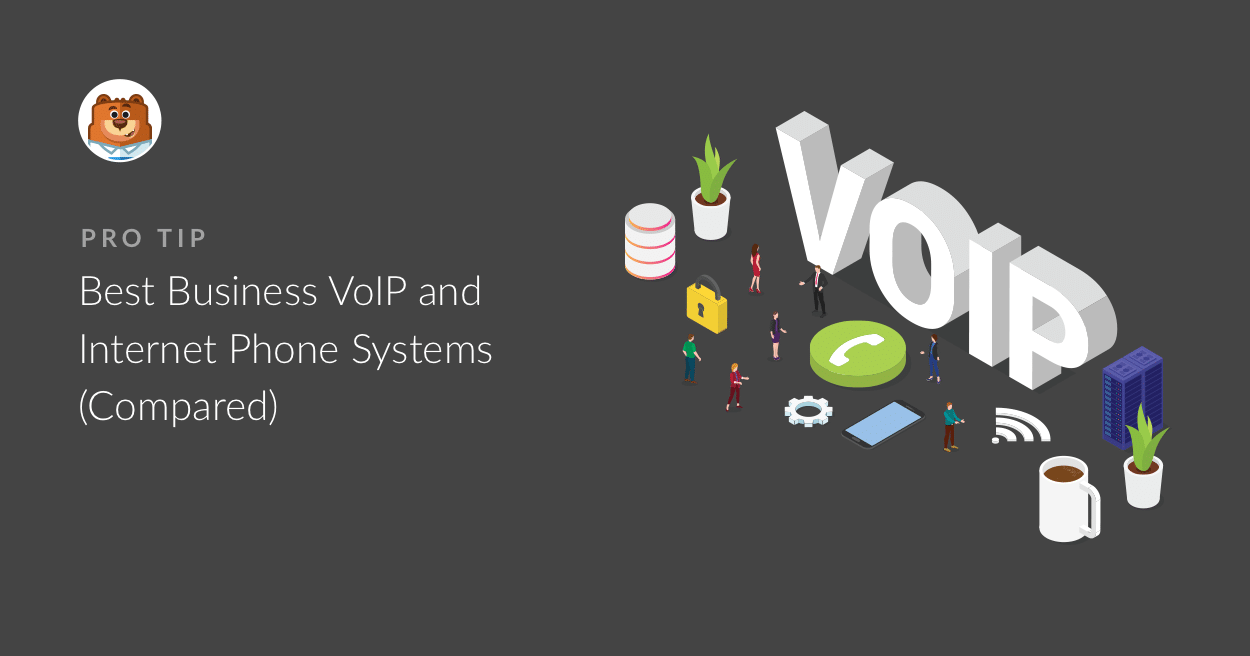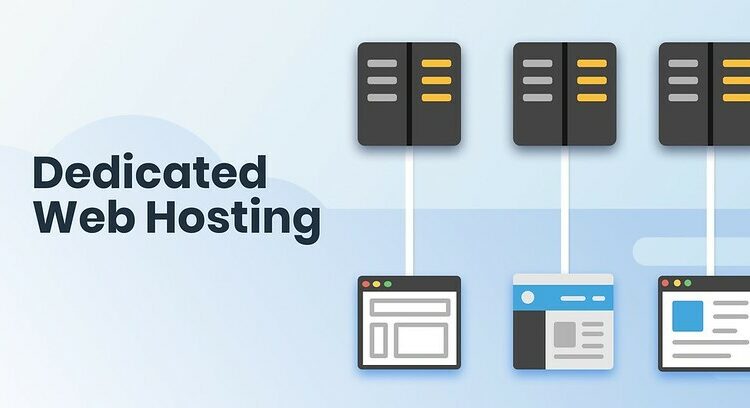In an era of digital transformation, small business owners are constantly seeking innovative solutions to streamline operations and cut costs. Among the myriad of options available today, internet phone lines for business have emerged as a game-changing communication tool.
Toc

What Are Internet Phone Lines?
Internet phone lines, commonly known as VoIP (Voice over Internet Protocol), leverage broadband internet connections to transfer voice data digitally, making traditional telephone lines obsolete. Unlike traditional phone systems, VoIP services offer a plethora of advanced features at a fraction of the cost. These include call forwarding, voicemail transcription, video conferencing, and more.
Why Should Small Businesses Switch to VoIP?

The benefits of internet phone lines, also known as Voice over Internet Protocol (VoIP) systems, for small businesses are incredibly profound and multifaceted, offering a range of advantages that can significantly transform how these enterprises communicate both internally and with their clientele:
Cost Efficiency:
VoIP technology is a game-changer for small businesses, primarily due to its significant cost-saving potential. By eliminating the need for traditional voice and data networks, VoIP consolidates communications onto the internet, slashing maintenance and operational costs. This is particularly beneficial for long-distance and international calls, which typically incur hefty charges with conventional phone services. Small businesses, which often operate on tight budgets, can allocate resources more efficiently, investing in growth and development areas instead.
Flexibility and Scalability:
One of the standout features of internet phone lines is their unparalleled flexibility and scalability. Employees can effortlessly make and receive calls from any location worldwide, provided they have a stable internet connection. This level of adaptability is ideally suited for businesses with remote workforces or those whose operations involve frequent travel. Moreover, VoIP systems can grow with your business. Adding additional lines or enhancing features can be done with just a few clicks, without the hassle of complex hardware installations—making it an ideal solution for rapidly expanding businesses.
Feature-Rich Services:
VoIP services come packed with a plethora of features designed to streamline communication and enhance productivity. Standard options such as caller ID, call forwarding, voice mail, teleconferencing, call waiting, and call routing are just the beginning. Many VoIP providers offer advanced capabilities like auto-attendants, which greet and direct callers automatically, and CRM (Customer Relationship Management) integrations that can significantly boost the professionalism and operational efficiency of your business. These features not only improve the workflow but also elevate the overall customer experience.

Reliability:
In the past, VoIP services might have suffered from reliability issues, but modern advancements have seen a monumental improvement in both call quality and service stability. Today’s VoIP providers invest heavily in infrastructure and often have multiple redundancies in place to ensure a consistently stable service. In many cases, the call quality and reliability of VoIP now rival or even surpass those of traditional telephony systems, giving small businesses the confidence to rely on internet phone lines as their primary means of communication.
Enhanced Customer Service:
The integration capabilities of VoIP systems with contact center services and CRM software present a significant advantage for small businesses focused on delivering superior customer service. By providing a comprehensive view of customer interactions and histories, businesses can tailor their communication to meet individual customer needs more effectively. This personalized approach not only improves customer satisfaction but also fosters loyalty and can lead to increased revenue through repeat business.
In conclusion, adopting VoIP technology offers small businesses a comprehensive suite of benefits that can lead to cost savings, improved communication flexibility, and enhanced customer service. As the digital landscape continues to evolve, internet phone lines stand out as a pivotal tool for small enterprises aiming to compete and thrive in today’s market.
Considerations Before Transitioning

Before small business owners transition to an internet phone line, several key factors should be carefully considered to ensure a smooth and effective communication system:
The Reliability of Their Current Internet Connection:
VoIP (Voice over Internet Protocol) technology entirely depends on an internet connection to transmit voice calls. Therefore, it’s critical to assess the reliability and strength of the existing internet service. A high-speed and stable internet connection is a prerequisite for VoIP, as it requires additional bandwidth to manage voice calls alongside regular internet use. Inadequate or unstable connections can lead to poor call quality, including delays, echoes, or dropped calls, significantly impacting the effectiveness and professionalism of business communications.
Power Backup Solutions, as VoIP Requires Power to Function
One of the fundamental differences between VoIP and traditional landline phones is their dependency on electricity. VoIP devices, like any other internet-connected devices, need power to operate. Consequently, in the face of a power outage, VoIP services will be interrupted, which can halt business operations, especially for those heavily reliant on phone communications, such as customer support centers, sales departments, and other telecommunication-intensive businesses. Planning for power outages with reliable backup solutions, like uninterruptible power supplies (UPS), battery backups, or standby generators, is essential to maintain uninterrupted communication channels.
The Potential Need for Upgraded Hardware or Software
Adopting VoIP might necessitate an evaluation of the current hardware and possibly acquiring new equipment to optimize the quality of voice calls. While VoIP services can be accessed through conventional devices like computers, smartphones, or tablets, investing in specialized IP phones or high-quality headsets can enhance voice clarity and reduce background noise, thereby improving the overall communication experience. Moreover, specific VoIP solutions might require the installation of certain software applications or plugins on these devices. Ensuring compatibility and meeting the technical requirements for these VoIP services may involve updates or upgrades to existing hardware or software, which can incur additional costs but are vital for leveraging the full benefits of VoIP technology.
By thoroughly considering these aspects, small business owners can make a more informed decision on switching to a VoIP service, which can offer significant advantages in terms of cost savings, flexibility, and advanced communication features tailored to modern business needs.
Popular Internet Phone Line Providers for Businesses

Not all VoIP services are created equal. To find the best fit for your business, consider factors like pricing, contract terms, customer support, included features, and ease of use. Always check provider reviews and ensure they have a proven track record with small businesses.
Nextiva: Offers a comprehensive suite of VoIP features, including call recording, analytics, and video conferencing. It is popular among businesses for its user-friendly interface and scalability, making it suitable for businesses of various sizes, from small startups to large enterprises.
RingCentral: Known for its reliability and high-quality voice calls, RingCentral stands out in the market. It provides a variety of plans catering to businesses of all sizes, ensuring that whether you’re a small business or a multinational corporation, there’s a plan that fits your needs. Its robust functionality and easy integration with other software make it a favorite among professionals.
Vonage: A cost-effective option, Vonage is popular for its basic plans and international calling features, making it especially appealing to businesses with global communications needs. It offers straightforward pricing and flexibility, allowing businesses to scale their communications as they grow.
8×8: Offers a cloud-based VoIP solution with advanced features like call center functionality and integrations with popular business applications such as Salesforce and Microsoft Teams. This makes 8×8 an ideal choice for businesses looking for a comprehensive communication solution that supports both internal and customer-facing communications.
Dialpad: A user-friendly VoIP solution ideal for small businesses. Dialpad offers a flexible pay-as-you-go plan, which is perfect for businesses with fluctuating needs. Its seamless integration with various business tools, including G Suite and Salesforce, allows for an efficient workflow, making communication smoother and more integrated into daily operations.
Conclusion

The transition to internet phone lines for business offers a compelling array of advantages including cost savings, scalability, and a plethora of sophisticated features. For small businesses wanting to stay competitive in a fast-paced digital world, adopting VoIP could be the smartest move toward future-proofing their communications.
Small business owners, it’s time to say goodbye to the limitations of traditional telephony and welcome the myriad of opportunities with internet phone lines. Upgrade your business communication today and reap the benefits of a connected, efficient, and cost-effective future.
For small businesses looking to stay ahead of the curve, internet phone lines for business are not just a trend, but a strategic investment. Discover more about how VoIP can transform your business by visiting https://xn--h10bm04byqhsqa.com/ for more information.











